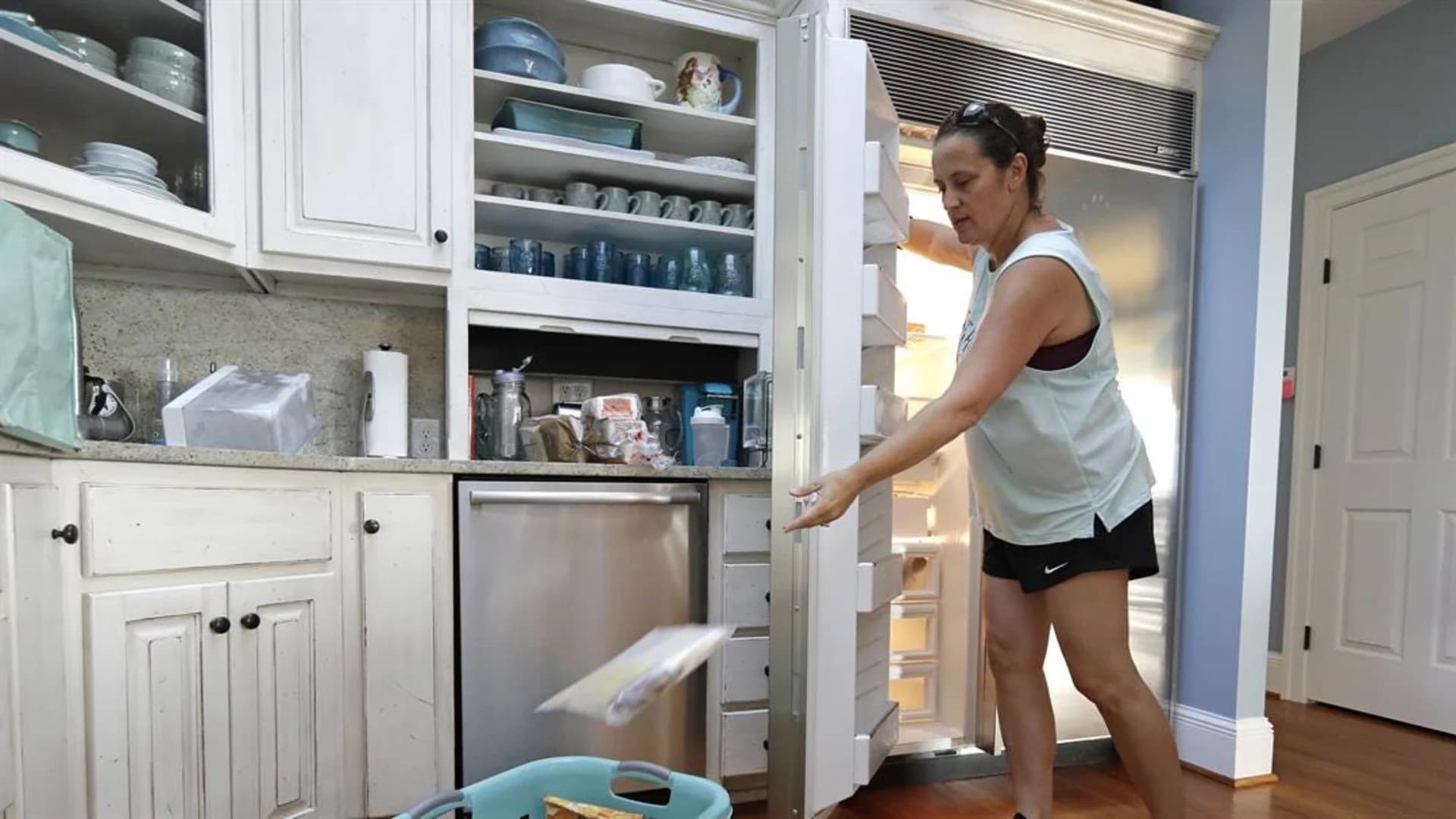More Stories

If a power outage plunges you into darkness, and your fridge is chock full, how do you know what to keep? Here are some tips.
With many people working and staying home because of the coronavirus pandemic, many of our refrigerators and freezers are filled with provisions - bringing the danger of much more food spoiling if there is no power.
FoodSafety.gov says that a refrigerator will keep food cold for about 4 hours if the door is kept closed. A full freezer will hold its temperature for about 48 hours (24 hours if half-full).
Here are seven food safety tips during and after a power outage:
1. Keep the refrigerator and freezer doors closed as much as possible.
2. Refrigerators and freezers that lack power can function as old-fashioned "iceboxes." You can use ice (many grocery stores sell it) to help keep food cold in freezers, refrigerators or coolers.
3. Place meat and poultry to one side of the freezer, or tray, to prevent cross contamination of thawing juices.
Once power returns:
4. Examine everything and discard anything that is possibly unsafe.
5. Check the temperature inside of your refrigerator and freezer. If any perishable food (such as meat, poultry, seafood, eggs or leftovers) has been above 40°F for two hours or more, get rid of it.
6. Check each food item separately. If there is food in your freezer that is partially or completely thawed, it can be safely refrozen or cooked as long as it still contains ice crystals or is 40°F or below. Check this FoodSafety.gov chart for a list of what foods you should throw out and foods you can refreeze.
7. Throw out any food that has an unusual odor, color or texture or feels warm to the touch, and never taste a food to decide if it's safe. When in doubt, throw it out.
More from News 12
1:42

NYPD searches for 2 men wanted for robbing, stabbing man in Bedford Park
2:21

STORM WATCH: Late-night mix gives way to sloppy Tuesday commute for The Bronx
4:17

‘Why don’t we have any answers?’ Bronx family demands justice in decades old cold case
1:51

City Council passes bill to finance affordable housing for families
1:46

Bernie Sanders to swear in Mayor-elect Mamdani before Inauguration Day block party
0:24
